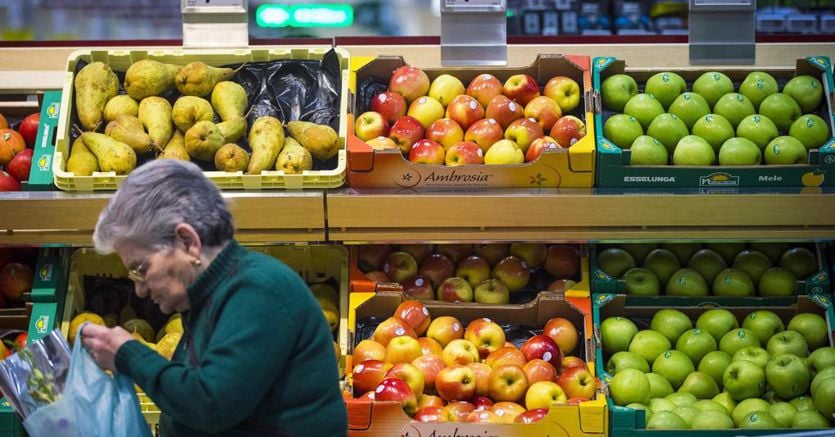The “treasury” of savings accumulated by households during the pandemic, especially in liquid form, with a current incidence of deposits equal to 110% of disposable income, represents a fundamental “psychological guarantee” which, assuming a falling inflation over the of 2023, will be able to favor the resilience of consumption despite the loss of purchasing power caused by inflation never so high since the mid-1980s.
A beneficial effect that, however, is unlikely to involve low-income employees, as the additional savings have been accumulated mainly by medium / high-income families. This is what is highlighted by the report “The accumulated liquidity as a reserve to tackle inflation?”, Produced as part of the Monitor Phase 3 research project, the result of the collaboration between the Legacoop Study Area and Prometeia.
The propensity to save increased during the pandemic
The survey highlights how, during the pandemic, the propensity to save greatly increased (in parallel with a reduction in consumption), with an almost doubling of flows in 2020 compared to the averages of the years preceding the pandemic (from 8.0% in 2019, equal to 93 billion, it goes to 15.6%, equal to 175 billion) and a level that is still very high in 2021 (12.4%, equal to 153 billion). A behavior determined not only by the impossibility of using many goods and services due to the closures, but also because families, frightened by the exceptionality of the situation, have set aside more for precautionary purposes, also favored by a very broad political support budget in support of households, businesses and employment. A trend that also continued in the first months of 2022.
Further accumulation of liquidity in the first months of 2022
The context of uncertainty and the negative trends of the financial markets have in fact favored a further accumulation of liquidity for precautionary purposes (between January and May the flow of deposits stood at 20 billion), despite the inevitable erosion of the value of liquid wealth with the increase in inflation and the push to consume to return to the lifestyles preceding the pandemic.
The variable income class
The study underlines that behind the aggregate data there are very consistent differences between types of families, especially with reference to the income class. The families belonging to the first deciles are usually unable to save and, in any case, allocate a greater share of their income to “forced” expenses (housing, transport, food), where there is little space for spending on tourism and entertainment, the more limited ones during the two years of the pandemic. And it is precisely these families that are suffering the heaviest effects of an inflation whose run, which began in 2021, continued until it reached 8% in June of this year (and then decreased by one decimal point, to 7.9 %, in July) due for more than half to the energy component, but now largely also to food and the more core component, for example with a rapid increase in the prices of services linked to tourism. And while many companies manage to offload the increase in costs downstream, fixed-income households are experiencing a very large curtailment of their real income, considering that an inflation of 8% for a full year would be equivalent to the loss of power. purchase of a monthly salary.
